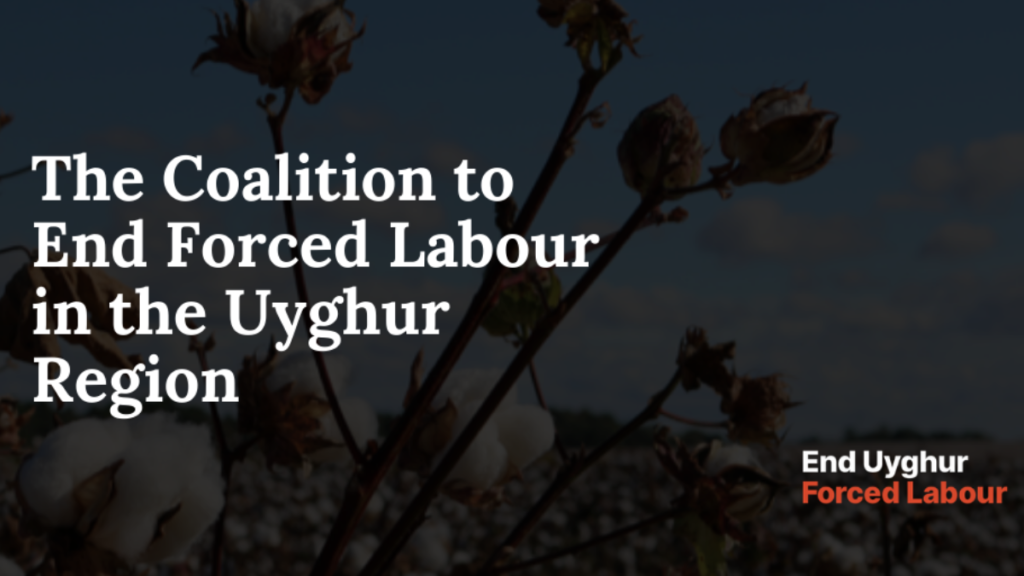Car Industry Must Take Immediate Action to Exit the Uyghur Region

December 6, 2022
New report shows depth of industry links to Uyghur forced labour
[Below is a statement by the Coalition to End Forced Labour in the Uyghur Region, for which the Uyghur Human Rights Project is a Steering Committee Member]
The automotive industry must exit the Xinjiang Uyghur Autonomous Region (Uyghur Region) at every level of the supply chain, said the Coalition to End Forced Labour in the Uyghur Region. This includes ending all links to suppliers operating in the Region or implicated in government-sponsored forced labour transfer programs anywhere in China. This call follows a new report published today by Sheffield Hallam University and NomoGaia, which documents that the supply chains of major car makers are exposed to Uyghur forced labour, from raw materials mining and processing to auto parts manufacturing. The government of China’s well-documented repression against Uyghurs and other Turkic and Muslim-majority peoples includes mass arbitrary detention and systematic state-imposed forced labour that, according to UN human rights experts, may constitute crimes against humanity.
“The prevalence of Uyghur forced labour in global supply chains is undeniable, tainting nearly the entire car industry – nearly every part of the car and nearly every major manufacturer,” said Dolkun Isa, President of the World Uyghur Congress. “Companies around the world have a moral, and legal, obligation to end any complicity in these crimes. The car industry needs to take swift action to extricate itself from Uyghur forced labour.”
According to the report, Driving Force: Automotive Supply Chains and Forced Labor in the Uyghur Region, practically every car part requires heightened scrutiny to ensure that it is not linked to Uyghur forced labour. This includes components that are being sourced from the Uyghur Region such as batteries, for both internal combustion engine and electric vehicle battery cars, wheels, tires, glass, interiors, electronics, and other parts.
“This is an entire industry problem, not a single company issue and requires urgent, industry-wide solutions as well as immediate and concerted action by companies. This report shows the deep interlinkages between the global automotive supply chain and Uyghur forced labour, said Allison Gill, Forced Labor Program Director at Global Labor Justice-International Labor Rights Forum. “Uyghur forced labour is a driver of crimes against humanity targeting Uyghurs and it hurts all workers in the car supply chain.”
According to the report, over 100 international manufacturers of automotive parts or cars have some exposure to materials or products made with Uyghur forced labour. Production and processing of steel, aluminium, and copper, which are key metals in car manufacturing, is not only reliant on Uyghur forced labour but is also environmentally damaging and energy-intensive. The Uyghur Region alone represents around 10% of the world’s global aluminium production, and hosts the world’s largest steel supplier and copper supplier. The production of all three metals in the Region is reportedly linked with Uyghur forced labour, thus posing huge implications for our global products made with these inputs.
The report authors recommend:
- Auto manufacturers should exit the Uyghur Region at every level of their supply chains and cease doing business with suppliers implicated in Uyghur forced labour in line with the demands of the Coalition to End Forced Labour in the Uyghur Region.
- Car companies should work individually and collectively to conduct or commission their own supply chain mapping and analysis of raw materials mining and processing and parts manufacturing in the Region.
- Corporations in the automotive industry and commodities trading firms should engage in both internal and cross-sector collaborative efforts to cease sourcing all products mined, made, or manufactured, in whole or in part, in the Uyghur Region. This would include ending business relationships or contracts, whether direct or indirect, with any companies that have operations in the Uyghur Region or that have accepted government-supplied labourers from the Uyghur Region in other parts of China.
- Auto manufacturers should publicly report on findings of supply chain links to the Uyghur Region to facilitate knowledge of supply chain risks across the automotive industry and industries with related supply chains. Decisions to terminate procurement relationships should also be made public to inform other industry actors of identified supply chain problems and promote supply chain transparency.
The findings of the report underscore the urgent need to establish alternative supply chains, and to set, report, and enforce high labour and environmental standards across the globe. Governments and car companies alike have both the power and responsibility to immediately take action to eliminate the industry’s reliance on Uyghur forced labour and provide highroad alternatives. The report’s findings also point to the need for ambitious enforcement of upcoming mandatory due diligence laws and implementation of import bans for goods linked to forced labour.
Find out more about the Coalition to End Forced Labour in the Uyghur Region.
